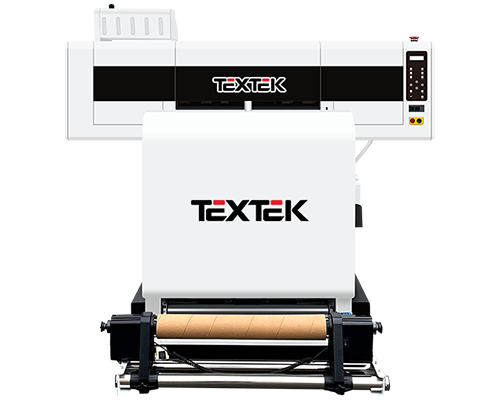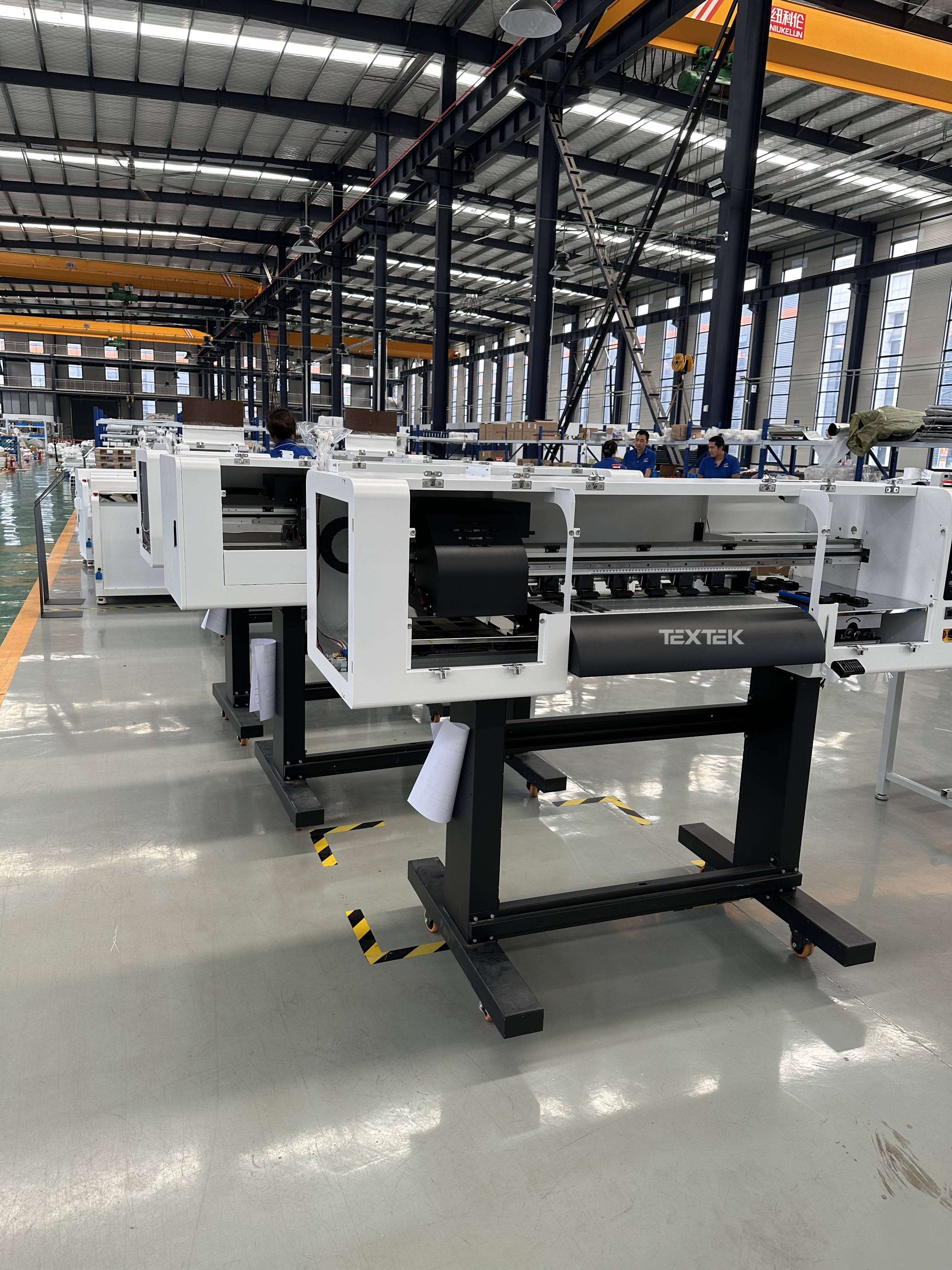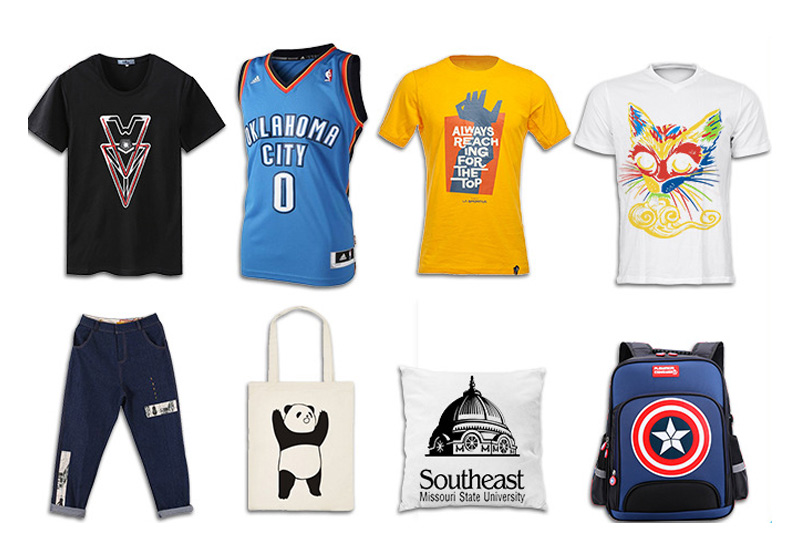
- Printhead: 2/3/4*Epson I3200-A1, EPSON I1600-A1
- Printing speed: 12-15 square meters per hour
- Print width: 60 cm (24 inches)
- Ink: Pigment ink
- Ink color: CMYK+W printing/+more than 10 Fluorescence Color Printing
- RIP software: RIIN/Flexiprint/CADlink/Maintop
TEXTEK DTF Printer Price
DTF uses a heat press to transfer the print to fabric or other substrates. DTF printing is available for cotton and blended fabrics. Direct-to-film printers allow you to print designs on film and transfer them directly to the intended surface.

DTF produces excellent digital transfer paper that can handle everything from one-color shirt labels to left chest logos to full-size prints. It uses PET film for better transfer characteristics, is roll fed, designed for cold peel – and is translucent for easier heat pressing.
Specification
| Model | DTF-A602 | DTF-A603 | DTF-A604 | |
| Printhead | Epson I3200-A1/Epson I1600-A1 | |||
| Quantity | 2 | 3 | 4 | |
| Printing Color | 4C+W | 4C+Fr+Fm+Fy+Fg+W | 4C+W | |
| Printing Speed | I3200-A1 | 6PASS 6-10m²/h 8PASS 4-7m²/h | 6PASS 6-10m²/h 8PASS 4-7m²/h | 6PASS 8-20m²/h 8PASS 7-16m²/h |
| I1600-A1 | 6PASS 4-7m²/h 8PASS 3-5m²/h | 6PASS 4-7m²/h 8PASS 3-5m²/h | 6PASS 11m²/h 8PASS 9m²/h | |
| Printing Size | 600mm | |||
| RIP Software | Riin/Flexiprint/Cadlink/Maintop | |||
| Media Transfer | Auto-feeding and take-up system | |||
| Heating Method | Front and back independent heating | |||
| Ink System | Auto ink supply, white ink circulating and stirring | |||
| Power Supply | 110V/220V 50-60HZ | |||
| Sleeping:45WStandby:85WWorking:350W | ||||
| Work Environment | Temperature:20°C-30°C humidity:35%-65% | |||
| Dimension | Printer | 1795*726*1380mm 213kg | ||
| Powder Shaker | 945*985*1054mm 127kg | |||
Features of 60CM Pro DTF Printer
- Support 4-head configuration, faster printing speed and higher efficiency
- Support CMYK+W printing, print picture with rich color and high precision.
- Humanized waste ink bin, sponge replacement, convenient and odorless.
- Fluorine rubber pressure roller to reduce static electricity and ensure accurate paper feeding.
- Emergency stop device to effectively protect the printer and print head and reduce maintenance costs.
- Adopt intelligent winding system to ensure the material is neatly rolled and easy to store.
Why should I choose the DTF printing business?

Designing a DTF print is as easy as designing on paper: your design is sent from your computer to the DTF machine, and the printer does the rest. Although DTF printers look different from traditional paper printers, they function very similarly to other inkjet printers. In contrast, screen printing involves dozens of steps, which means it is usually only cost effective for the simplest designs or for printing large quantities of items. While screen printing still has a place in the apparel industry, DTF printing is more affordable for small businesses or textile organizations that want to make smaller orders.
The simple four-step DTF process gives fabrics a softer feel and provides better wash resistance:.
- Step 1: Insert the PET film into the printer tray and print.
- Step 2: Apply hot melt powder to the printed image film.
- Step 3: Melt the powder.
- Step 4: Pre-press the fabric.
Why DTF is Growing so much?
DTF printing offers greater versatility than other printing technologies. DTF can print on a variety of fabrics including cotton, nylon, rayon, polyester, leather, silk, and more. DTF printing has revolutionized the textile industry and updated textile creation for the digital age. The process is simple: create digital artwork, print it on film, and transfer it to fabric.
More advantages of DTF printing:
- Very easy to learn
- No fabric pre-treatment is required
- The process uses about 75% less ink
- Better print quality
- Compatible with a wide range of materials
- Unmatched quality and high productivity
- Requires less space than other technologies